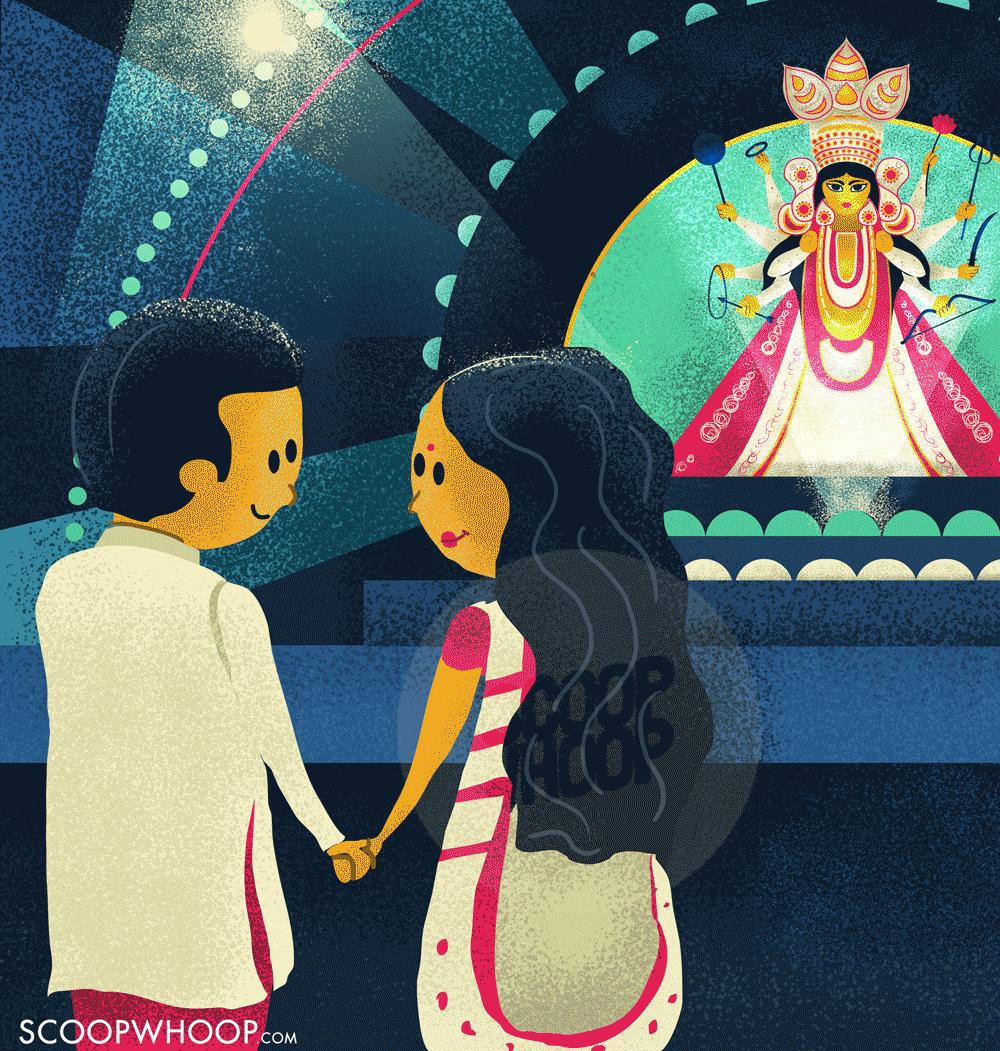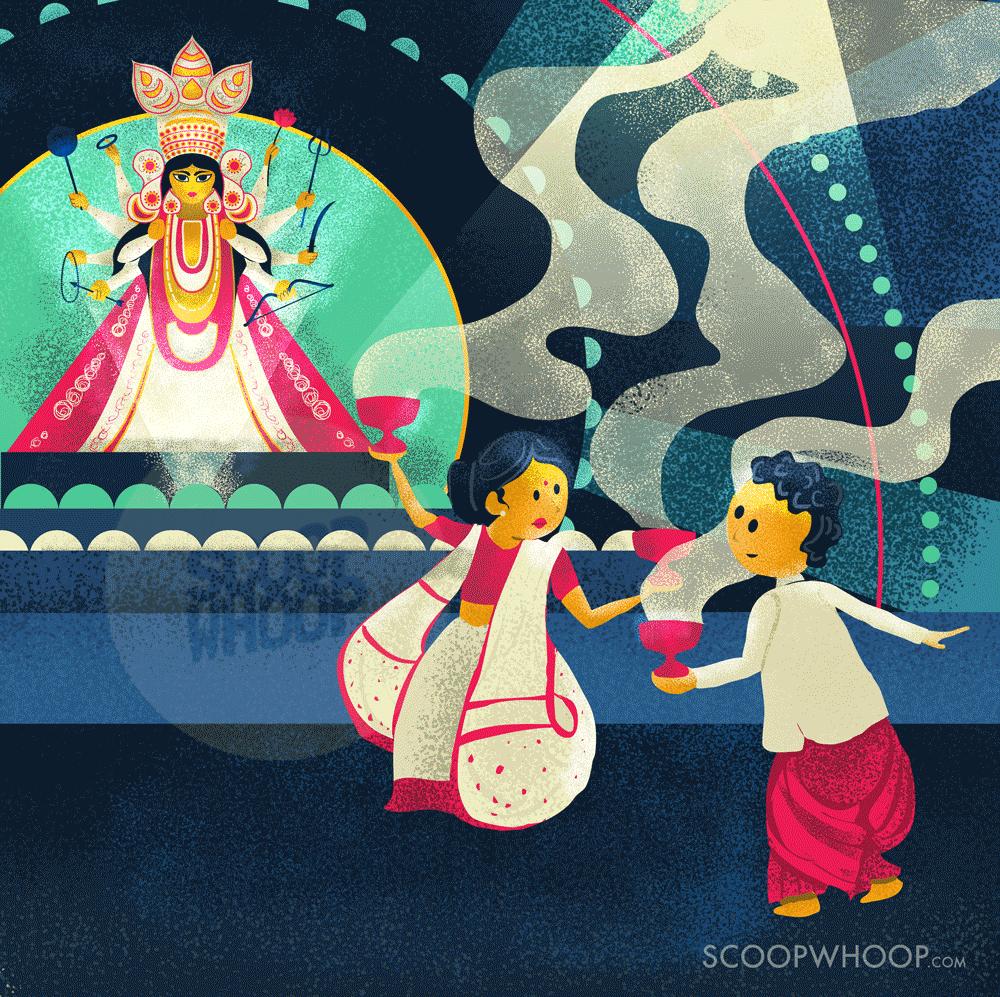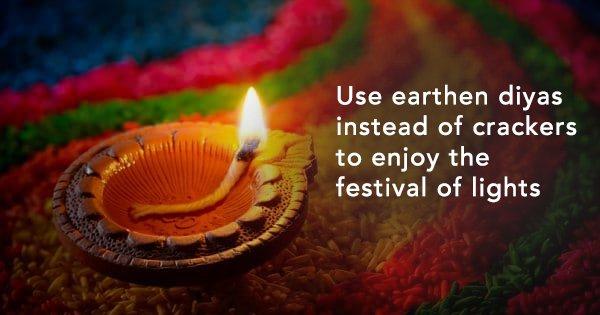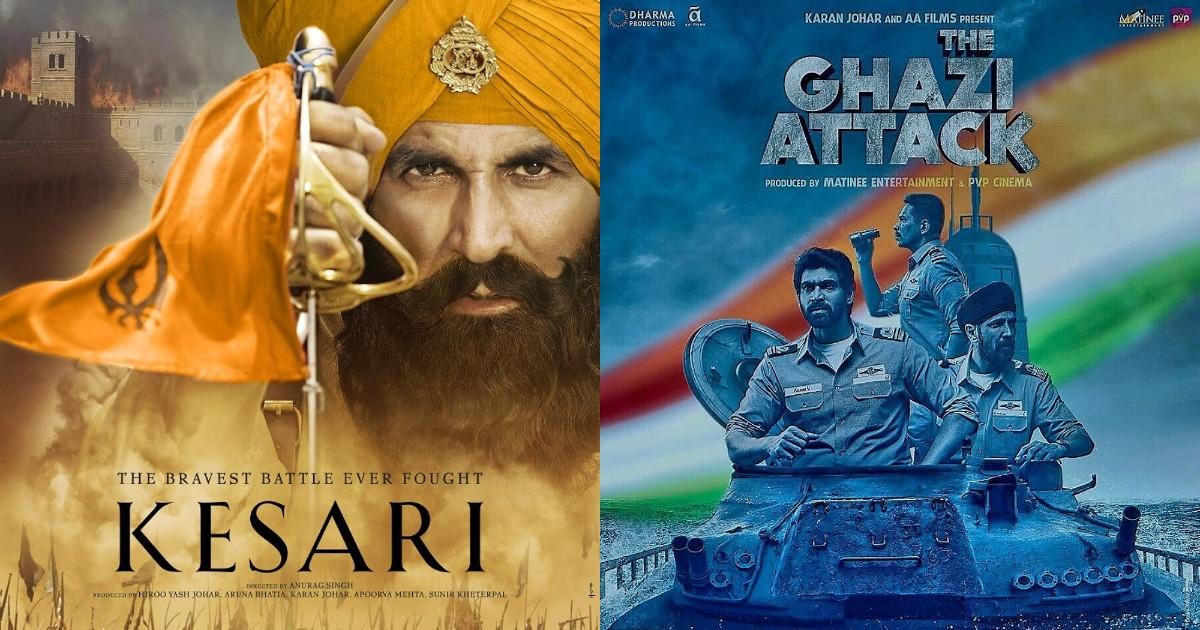Growing up in Kolkata, the four days of Durga Puja spelled freedom. Even my very strict and orthodox parents couldn’t say no to the things one just had to do in the name of Pujo, such as dressing up, wearing heel-juto (heel-shoes), wearing makeup, eating ‘outside food’, endless adda, meeting and talking to strange boys. In the quiet suburban area of Kolkata where I grew up, the pace of life went from 0 to 100 during Pujo.

Our area had only one community Pujo pandal and all of us congregated there. There would be various competitions in the mornings, like recitation, sit-and-draw, blowing the conch shell or breaking the matka, and in the evening there would be a plethora of cultural programmes involving singing, dancing and plays. After the morning aarti of the Devi was over, wooden folding tables and benches were assembled inside the pandal and everyone sat down to have bhog prasad. The main items of bhog, the khichuri, laabra and payesh, would be served by the grown-ups while we, the youngsters, would serve water, chutney and papad.
When the afternoon prasad distribution was over, the grown-ups would all leave. With the pandal all to ourselves, we’d simply loll around and indulge in long sessions of adda and a lot of flirting. There weren’t any beady-eyed kaku-kakimas around to pass disapproving comments, and my parents had long gone home for their mandatory bhaat-ghum (afternoon siesta). Those afternoons were idyllic.

Coy glances, a little bit of flirtatious teasing and most paratuto dadas fell hook, line, and sinker. Calling all would-be paramours in the neighbourhood as ‘dada‘, immediately removed them from suspicion in the eyes of the family. This is the Bengali version of the north Indian ‘he is my Rakhi bhai’ excuse.
The beautifully decorated pandal (pronounced as ‘pan-dell’ and not the north Indian ‘pun-daal’) was redolent with the smell of flowers and incense, while the latest Pujo hit songs played on the loudspeaker, interspersed with some mandatory Rabindrasangeet. Love blossoms fast in this heady atmosphere. With ‘bikele dekha hobe’ (we’ll see each other in the evening) promises made in the afternoon, young hearts beat faster. As the sun begins to set, everyone heads home to change into a new set of finery for the evening. Thus begins the Pujo romance. We call this ‘prem kora‘ (loosely translated as “doing romance”).

I experienced it in my youth and I still see it all around me during Durga Pujo. Since it is merely four days, romance speeds up while time slows down, unfolding like a storyboard for a minute-long advertisement. There is no restriction on movement and no curfew, so most young people usually spend the four days and nights moving from one pandal to another with their friends. These pandals become hunting grounds for young people in search of love. Youngsters have the perfect opportunity to mingle with strangers of the opposite sex during the Pujo days. Strangers become friends and sometimes go on to become more than friends. Ample opportunities are there to run into the same exciting stranger more than once while hopping from one pandal to another. Pujo makes the guy in your tuition classes whom you barely notice on all the other days of the week suddenly look dashing in his kurta-panjabi, or the shy girl in your neighbourhood becomes a stunner in a saree. Couples who are already dating get to show off their togetherness official-like in the glittering lights of pujo. One meets the vilayati cousins of some acquaintance who have landed in the city and are caught up in the joyous atmosphere of Pujo. The guy who acted opposite you in the play, whom you’d been crushing on throughout the rehearsals suddenly becomes more accessible.

There is a hint of romance. It’s very here and very now. It’s like the prom in the United States – a lot of firsts may happen, the first drink, the first smoke or even the first kiss. Then comes the most important part of the day – the dhunuchi naach. The dhunuchi naach is a perfect platform for showing off one’s attire and skilled footwork. The dancer knows that all eyes are on them, and fully exploits the chance to impress. It looks more dangerous and sexy than it actually is – the oddly-shaped dhunuchi, the flaming and smoking coconut fibres, the thick smoke swirling around the dancer… Mating games begin. And why not? Across the animal kingdom, species display a variety of courtship rituals.
It’s akin to the Red-capped Manikin’s moonwalk or the spectacular dance of the Bird of Paradise. As the dhaakis pick up their rhythm to an intoxicating pace, the clear area in front of the Devi becomes the dance floor. Gyrating and swishing in and out to the beat of the dhaak, hopeful young eyes meet and send a million messages silently through the smoke, while Ma Durga looks on benevolently. Remember the sequence in Parineeta, which shows Lolita (Vidya Balan) and Shekhar’s (Saif Ali Khan) budding romance during Pujo? We see a concerned Lolita picking up the burnt husks of coconut shells, so that they don’t singe Shekhar’s foot during the dhunuchi naach. Cupid’s arrows aimed straight at the heart. Mating may not follow dating but there definitely might be an opportunity later.

No matter how old and far away you get from Kolkata and Bengali culture, the memory of prem kora during Pujo remains in your imagination forever, evoking nostalgia for us oldies, and hope for the young ‘uns. So, in a Wildstone Deodorant advertisement set in the backdrop of Durga Pujo celebrations with the pulsating beat of the dhaak playing, we see a young Bengali married woman dressed in a traditional white saree with a red border bumping into a fragrant stranger and succumbing to the inevitable, a story line which might not be too far-fetched in today’s times.
The Durga Pujo atmosphere is magical. The city is transformed into an open-air art gallery with stunning pandals popping up across the skyline like flowers, the nights lit up by intricate alo’r shaj, the carnival-esque atmosphere, jostling crowds decked up in their best, incense and fragrance from both flowers and perfumes, the all-night revelry and free intermingling with the opposite sex seems like paradise. But it does come with some hiccups. As the excitement fades away with the immersion of the goddess, relationships too might lose their sheen and simply fade away. After all, as Walter Scott in Lochinvar said, ‘Love swells like the Solway, but ebbs like its tide’. To which the red-blooded Bengali will reply “Aschhe bochhor, aabaar hobe!” (Once again, next year!)
Illustrations by Aakansha Pushp

















